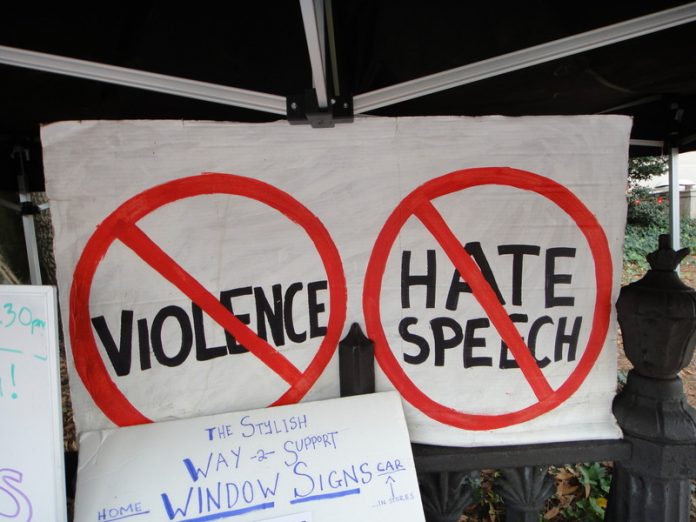Ignoring the trolls for just a sec, I’d bet most of us could agree online abuse is unacceptable. That’s why we laud social media companies like Facebook and Instagram that proactively take steps to keep vitriolic and harmful content off their platforms.
Now one public entity wants to do its part in cracking down on online abuse and it’s putting its focus on hate speech. The UK’s Crown Prosecution Service announced that as far as the court of law goes, they will begin treating online abuse with the same seriousness as a face-to-face hate crime committed against an individual or group based on race, religion, sexual orientation, or disability.
In an opinion piece published in the Guardian, Director of Public Prosecutions Alison Saunders summed it up by saying “hate is hate”.
“Whether shouted in their face on the street, daubed on a wall or tweeted into their living room, hateful abuse can have a devastating impact on victims,” she wrote. “My message to victims is that the CPS, police and others in the criminal justice system are ready to listen and, where we have the evidence, to hold those committing hate crimes to account.”
But while it’s a bold pronouncement on the part of the CPS, the procedural details are scant and unfortunately leave the words feeling just a bit windy. For instance, it doesn’t refer to any impact the new definition will have on how police conduct their operations if at all.
And while the updated guidance does encourage prosecutors to look at the impact hate crimes have on the broader community, it’s unclear how a prosecutor may go about measuring the impact such rhetoric would have on a community existing solely on the Internet – if such a thing can even be defined.
For citizens of the UK and for all of us, the truly revolutionary benefit this update could have may just lie in the fact that the CPS is at all stating they will take online hate speech into account in their courtroom proceedings. It’s a huge first step in attempting to treat hateful or dangerous words spoken online with the same kind of accountability as those spoken in-person. And maybe that change in tone will allow otherwise skeptical victims to come forward.
According to the Bureau of Investigative Journalism, the number of reported hate crimes grew by 20% in 2016 (from 50,288 to 60,225) from sampled police forces in England and Wales. But the report goes on to find that just “27% of hate crimes recorded by police resulted in a ‘positive’ outcome such as a charge, summons, caution or restorative justice in 2015/16, compared with 35% the year before.” So while hate crime is on the rise in the UK, police are taking less action against it.
A move that shows the public that prosecutors are taking hate crime seriously whether they take place in real life or in the cloud could help push these statistics in a better direction.











